Johannesburg Zoo, founded in 1904, houses 2,000 animals across 320 species. They offer family-friendly exhibits, conservation programmes, and interactive activities for all ages. In this feature, we give a brief history of Johannesburg Zoo, the animals and exhibits you can expect to see, the activities they offer, their conservation projects, and everything you need to know to plan your visit.
For thousands of years, human beings have been fascinated by animals. We've painted them, documented their behaviour, and built spaces to observe them more closely. With 2,000 animals from 320 different species spread over 55 hectares, the internationally accredited Johannesburg Zoo is the perfect place to do just this. For families without the means to get out of the city to a wildlife reserve, the zoo has also long presented an opportunity for children to see and learn about wildlife, and the importance of conservation efforts and caring for Africa's unique biodiversity. In 2025, they're celebrating 120 years of bringing the world's animals closer to city-dwellers.
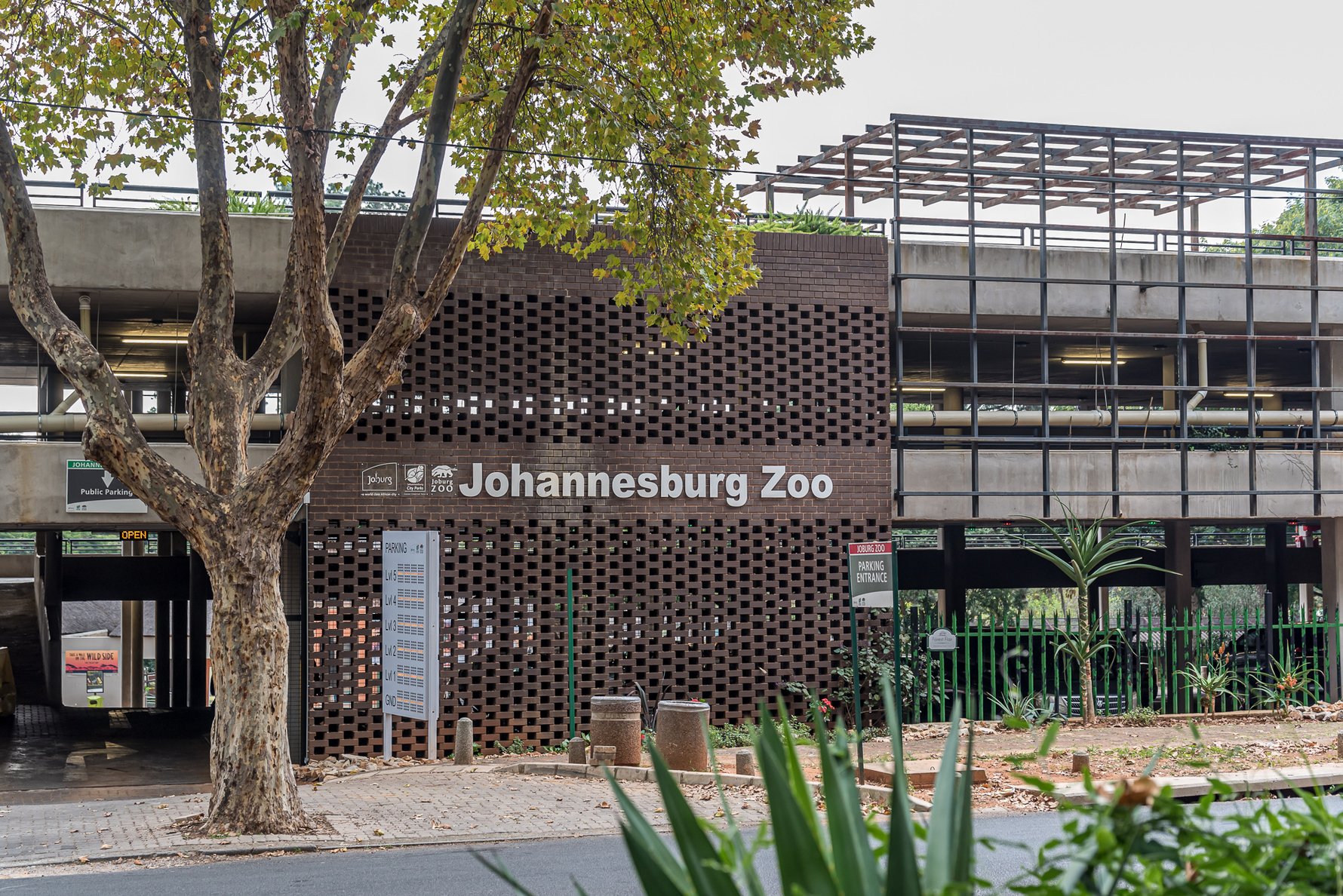
A brief history of the Johannesburg Zoo
Johannesburg Zoo was founded in 1904 when the late Hermann Eckstein donated his property to the people of Joburg for recreational use. The land, originally christened 'Sachsenwald' by Eckstein and on which he had planted three million trees, was located in what is now known as the leafy suburb of Saxonwold.
When the zoo first opened, it consisted of one enclosure that housed two lions. Other animals in Johannesburg Zoo's collection at the time were a leopard, a giraffe, two Sable antelopes, a baboon, a genet, a pair of Rhesus monkeys, a pair of porcupines, and a Golden eagle. Today, residents of Saxonwold and Parkview have been known to occasionally hear the resident lions roar at night.
In 1910, the Bandstand was built to host brass bands, and the elephant and rhino houses were built using stone in 1913 and 1915 respectively.
Throughout its existence, Johannesburg Zoo has always been open to all races, and Eckstein would presumably be happy to know that his inheritance has become central to the urban fabric of Joburg. The original 200 acres donated by Eckstein's mining company are also host to Zoo Lake and the South African National Museum of Military History. The zoo's original collection of animals was donated to it by Sir Percy Fitzpatrick, and in honour of this donation, the bronze statue of Fitzpatrick's beloved Jock was moved to the zoo.
The early Johannesburg Zoo was a green space with wide avenues that stretched across the property. It was thought of not just as a place for holding animals, but as a garden with planned paths, trees, and lawns. It was, as Kathy Munro puts it, "a place of leisure and a cultural space for bands and concerts". While the animals were originally a mere novelty, scientific study for educational purposes has become increasingly important at the zoo. In recent years, conservation has also become a central focus, as is evidenced by Johannesburg Zoo's Rhino Conservation Programme.
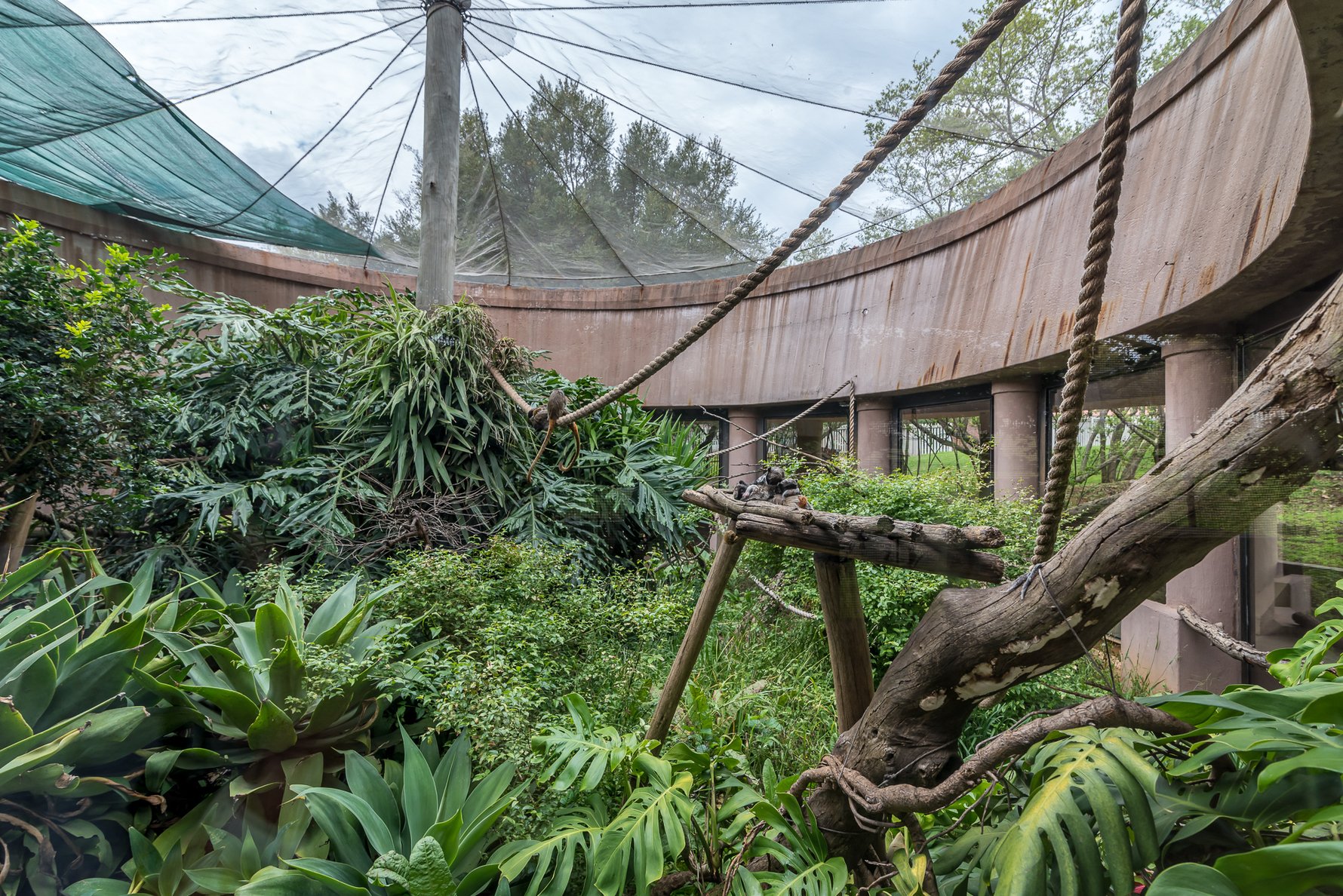
Another key feature of Johannesburg Zoo is the enclosures: while the animals were originally kept in cages or simple houses, the zoo became an early pioneer in creating enclosures that resemble the natural habitats of the animals that live there. This shift dramatically improved public perception of the zoo in the 1960s, and while some of the old enclosures were left intact as heritage structures, this approach continues to inform the design of the individual exhibits. Today, Johannesburg Zoo also hosts several educational programmes, and is part of international breeding programmes.
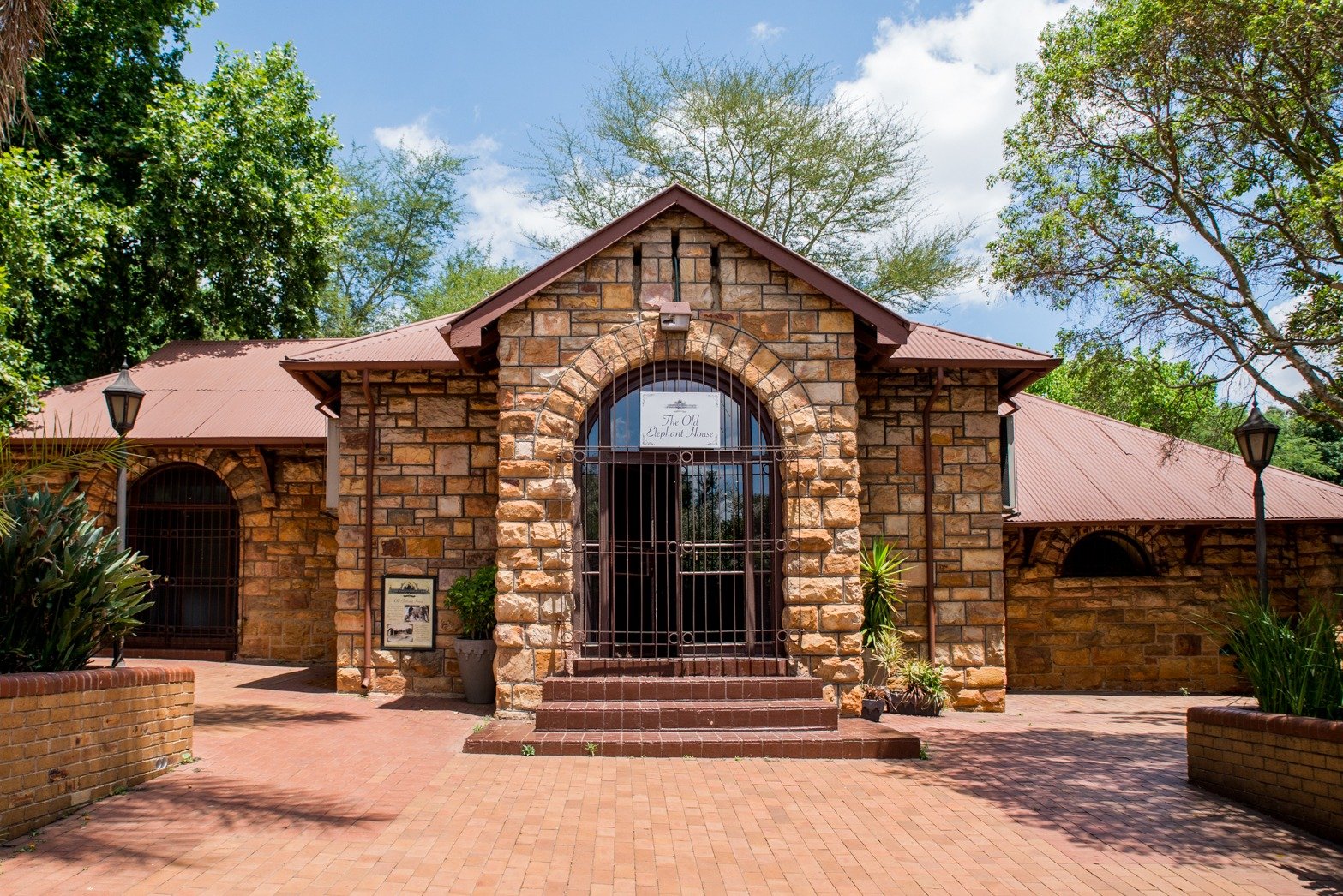
Animals and exhibits: Who's who at the zoo
Johannesburg Zoo is home to 2,000 animals that are divided into the following categories: birds, carnivores, frogs and reptiles, hoofed animals, and primates. These are organised into several themed exhibits, as well as the Aviary and Education Centre.AMAZONIA
The Amazonia exhibit on Amazon Avenue houses animals that are typically found in the Amazon forest, such as slinky Spider Monkeys, graceful Pumas, and odd-looking armadillos.
ANGLOGOLD LION ENCLOSURE
Home to many of Johannesburg Zoo's carnivores, the AngloGold Lion Enclosure houses 11 lions, including a rare white lion.
ANIMALS OF THE AMAZON
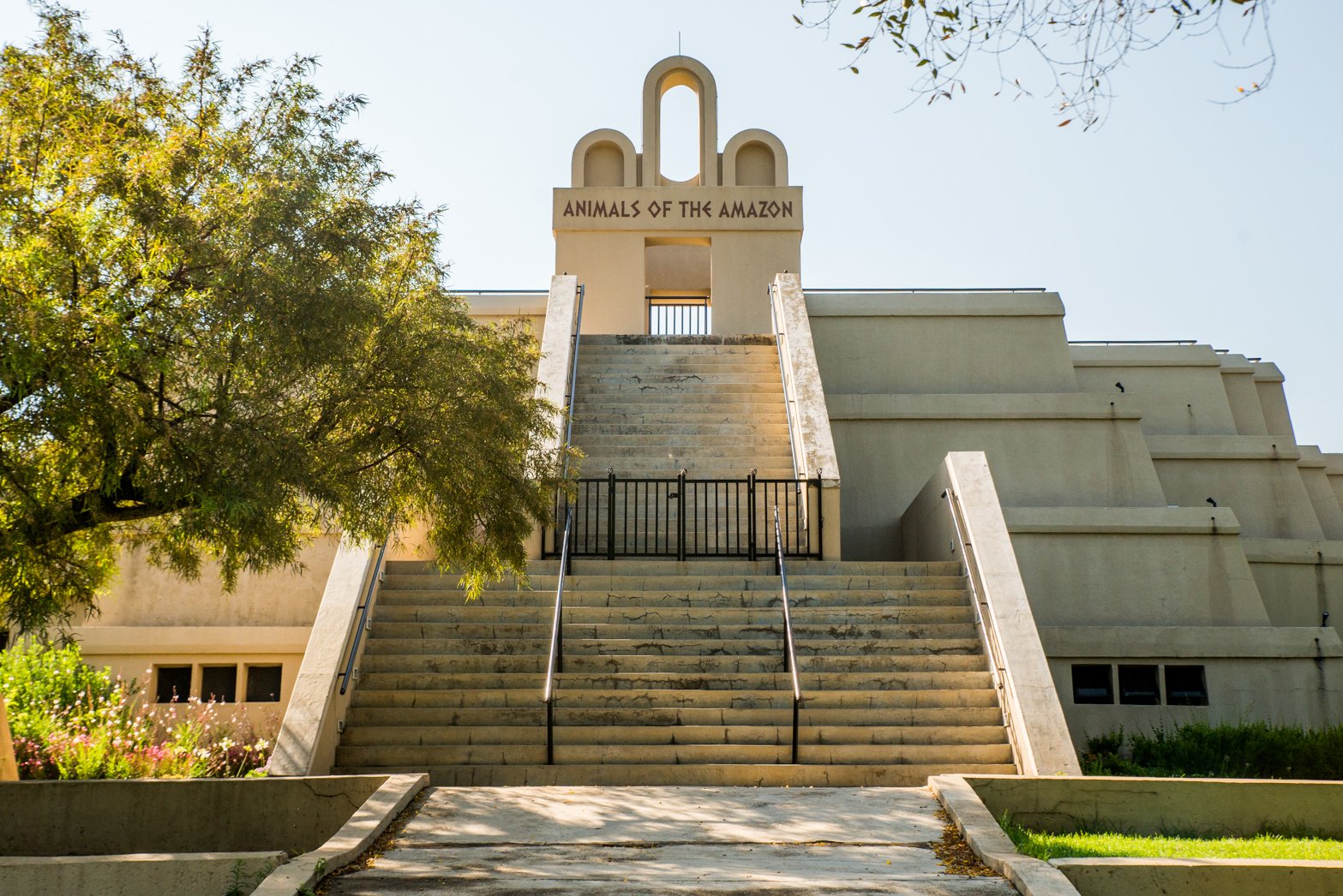
Launched in 2014, the Animals of the Amazon exhibit is a state-of-the-art enclosure that houses various creepy crawlies such as snakes, lizards, and amphibians. Highlights include an enormous and non-venomous Burmese python, some of the world's most venomous snakes, and the endangered Pickergill's Reed Frog.
APE HOUSE
In the Ape House, you will find primates such as chimpanzees, gorillas, and orangutans. Entertain yourself with the soap opera that plays out daily in the chimpanzee enclosure, or take a walk along Gorilla Walk, Monkey Lane, and Ape Alley to spend some time with some of humankind's closest relatives.
AVIARY
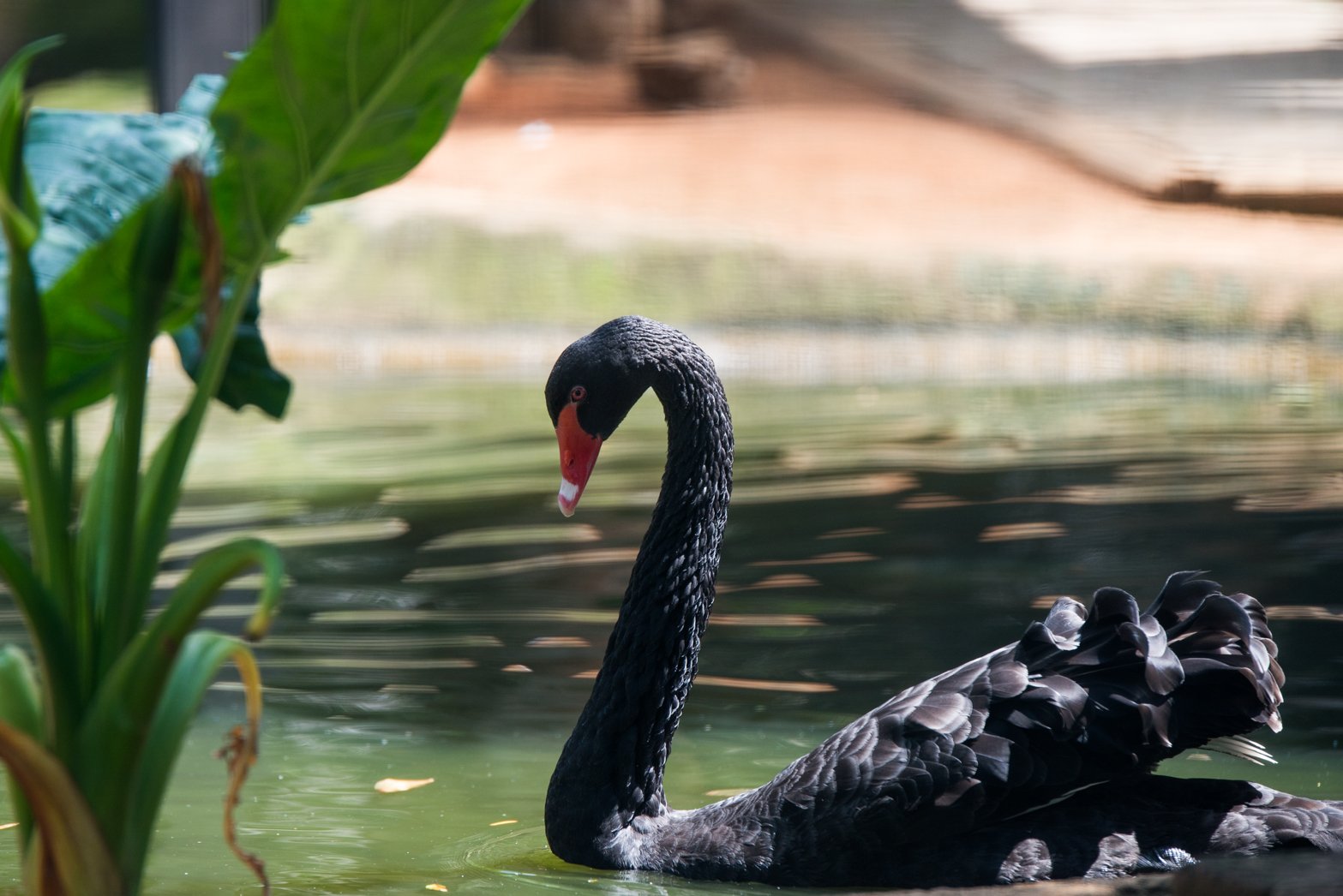
Johannesburg Zoo's 140 species of birds can be viewed Sasol walk-through aviary and the surrounding David Lewis Aviaries, as well as in the multitude of ponds and streams scattered throughout the property. Popular attractions here include the exotic Eurasian Eagle Owl, Blue-and-Gold Macaws, Whooper swans, and impressively large Pelicans.
CHEETAH SLOPES
The Cheetah Slopes exhibit, located on Gorilla Walk, is not only home to Africa's fastest carnivore, but also houses the endangered African Wild Dog and the newly-introduced Ethiopian Jackal.
CROCODILE COUNTRY
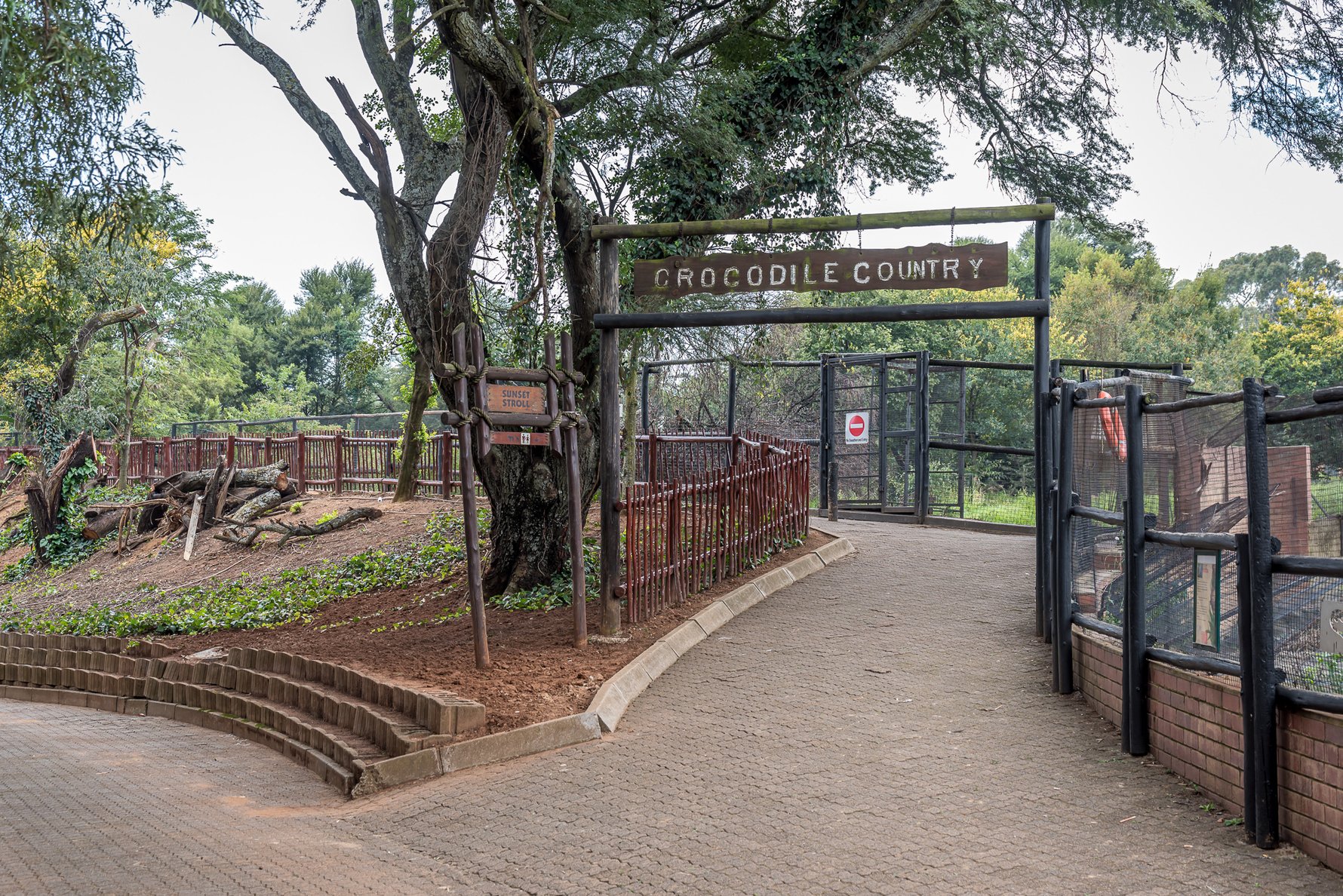
In Crocodile Country, you best watch your heels, because this is where all the snappers are! Here, they house all manner of reptiles, including the Nile Crocodile (which is so old it outlasted the dinosaurs). In summer, they also have special feeding times open for viewing by visitors.
FARMYARD
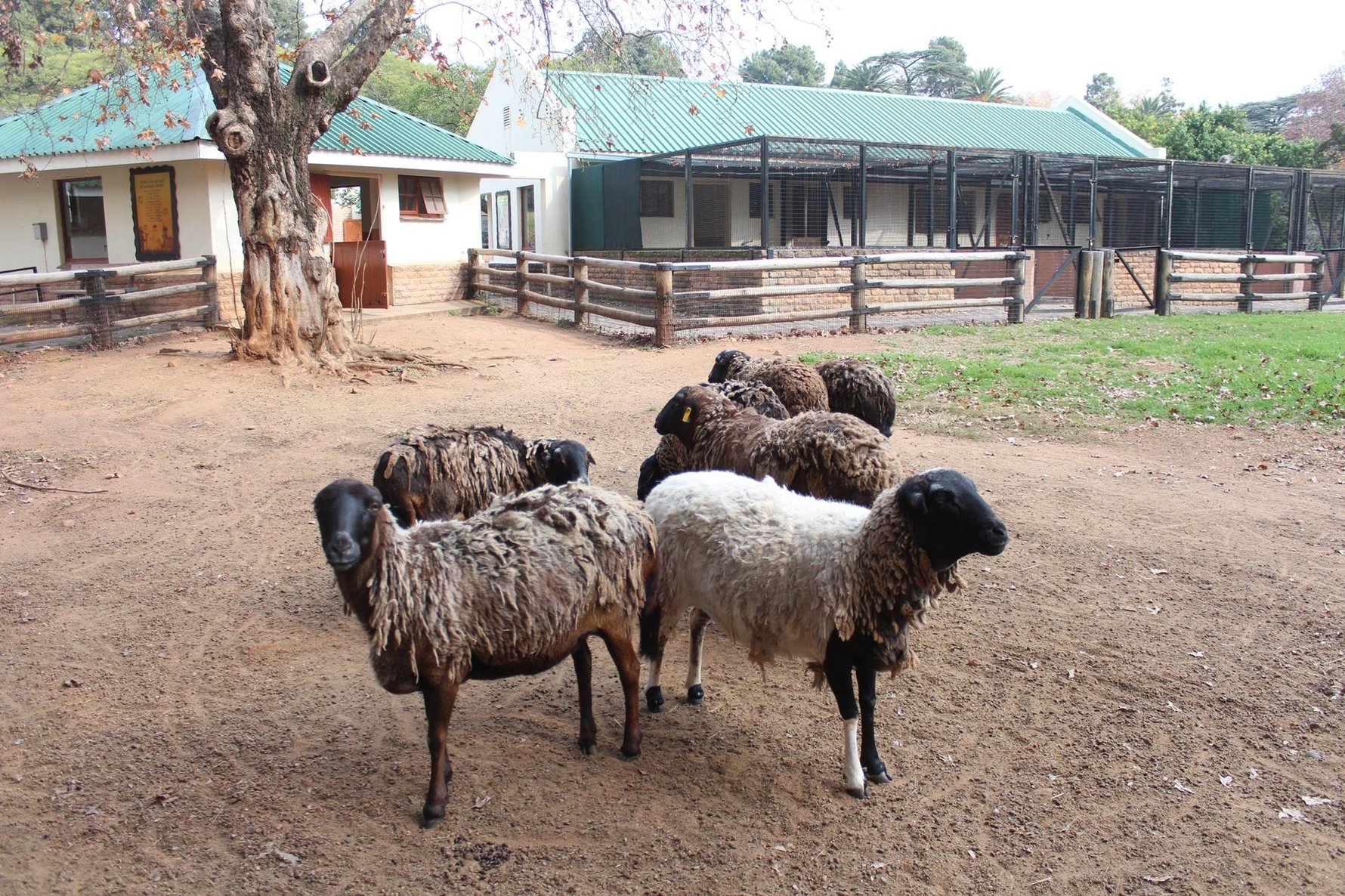
MADAGASCAR
Some of the world's most unusual primates are found in Madagascar, which is why this exhibit in the centre of Johannesburg Zoo is a favourite. Home to, among others, a variety of lemur species, this is where your children can meet the animals portrayed in the ever-popular animation film Madagascar.
REPTILE HOUSE
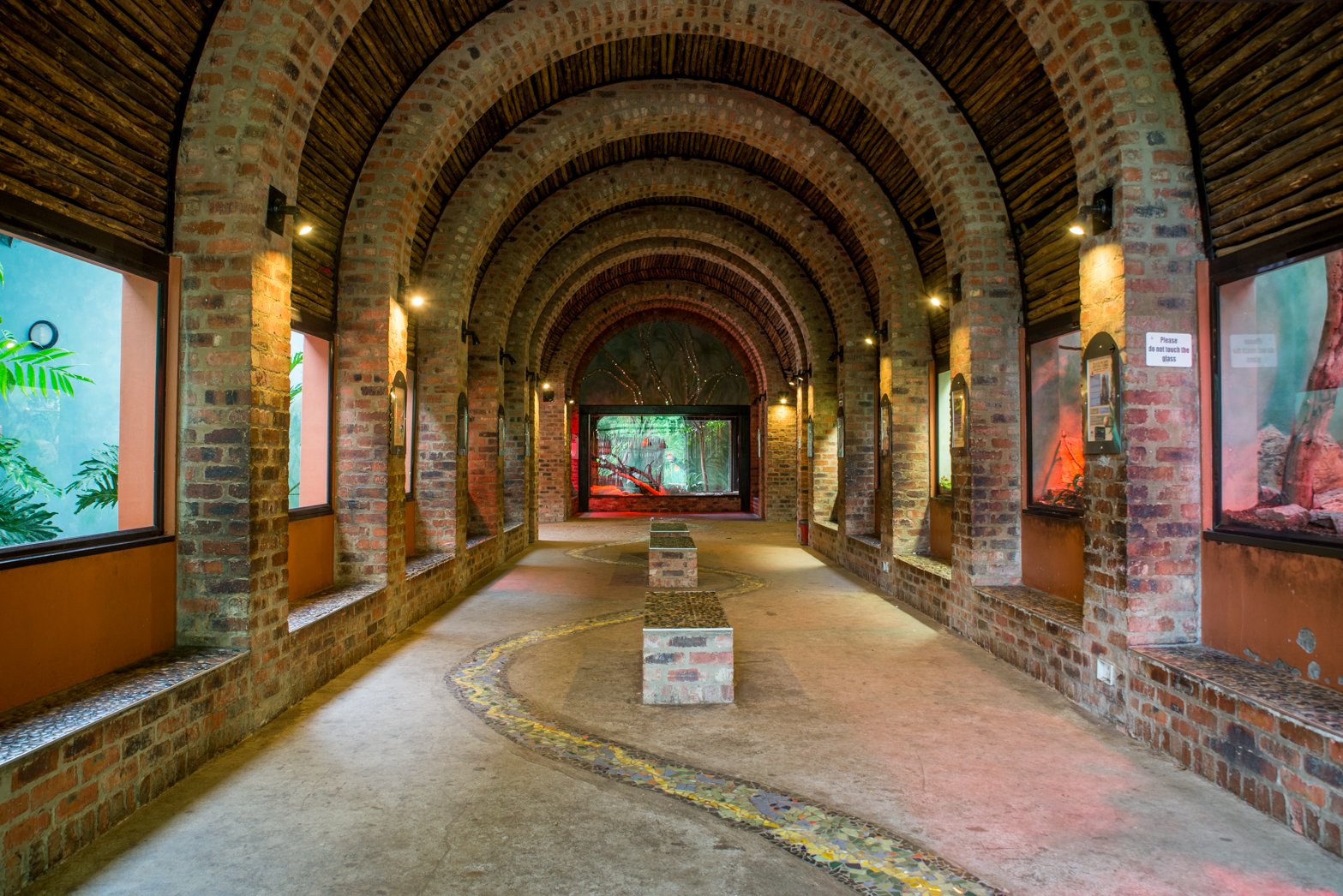
EDUCATION CENTRE
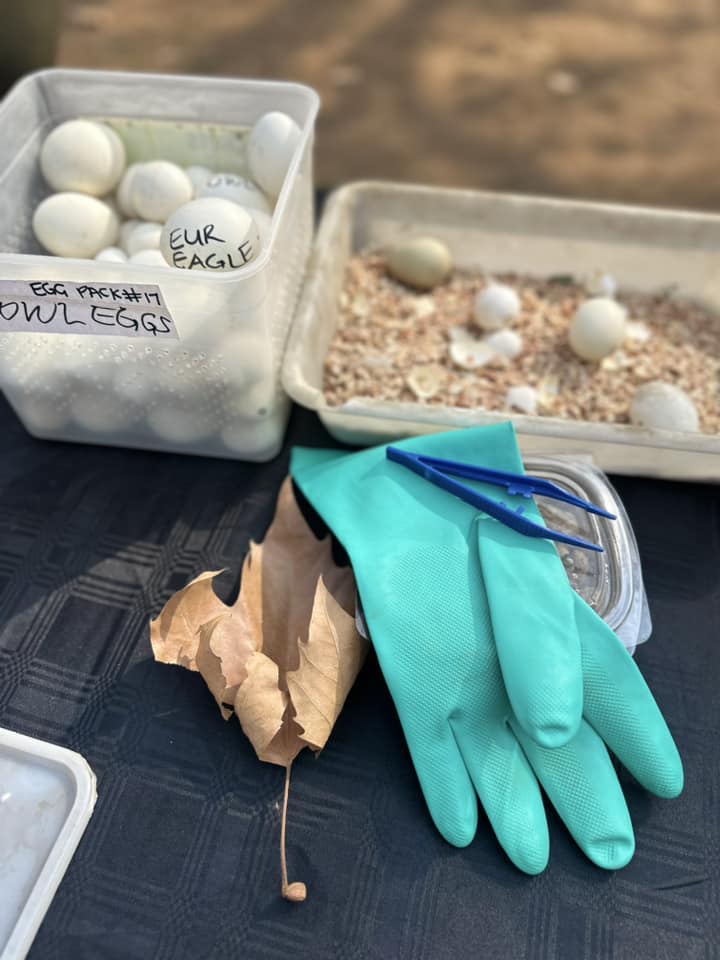
In the Education Centre, children and adults can get up close and personal with (stuffed) lions and tigers. Open weekdays only, this is a great place for school trips and fun, wildlife-themed photos.
BUT WAIT...
There's more! Also housed in Johannesburg Zoo are fan favourites such as giraffes and zebras, as well as the rest of the Big Five, and a variety of buck species. There are also spiders, flamingoes, tigers, and bears. The walk around the zoo is approximately 5km; find their map here.
Activities: What to do at Johannesburg Zoo
Johannesburg Zoo has so many activities that you are guaranteed to be entertained for many more weekends to come. From overnight stays to snacks and ferry rides, the zoo offers fun for everyone!RENT A GOLF CART
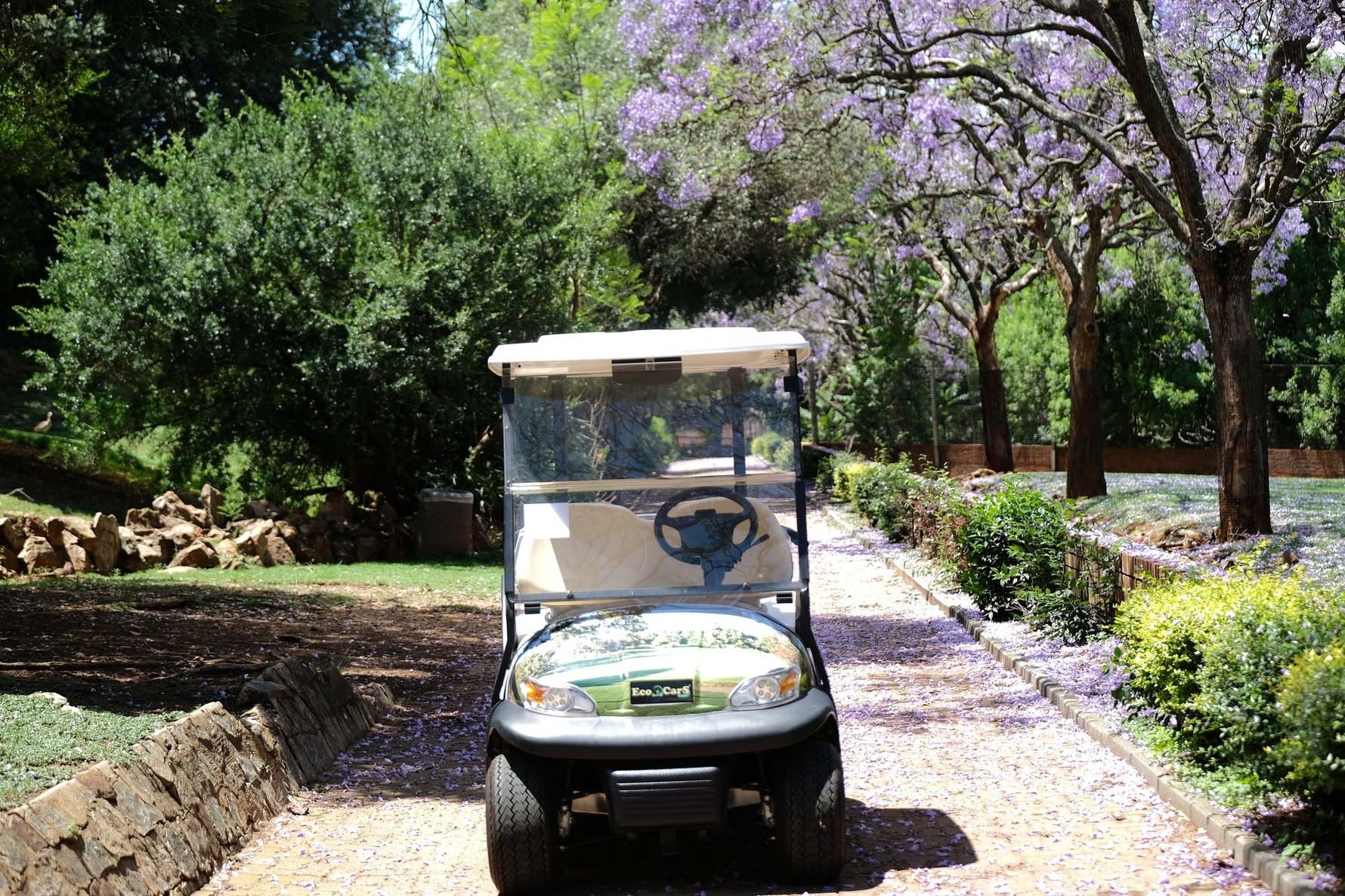
If the size of Johannesburg Zoo daunts you, start your morning by renting a golf cart with up to eight seats, or a trolley for your luggage from the Paws and Pull Operation. Golf carts are rented by the hour on a first-come-first-serve basis and require a valid driver's licence – so make sure you get there early!
HOP ON THE ZOO FERRY
If a golf cart is not adventurous enough for you, the Zoo Ferry transport system will take you where you want to go. Combine it with some walking past the exhibits and a rest stop or two on their manicured lawns for an unforgettable adventure. Ferry rides are R6 per person on weekdays and R12 per person on weekends.
BOOK A FERRY TOUR
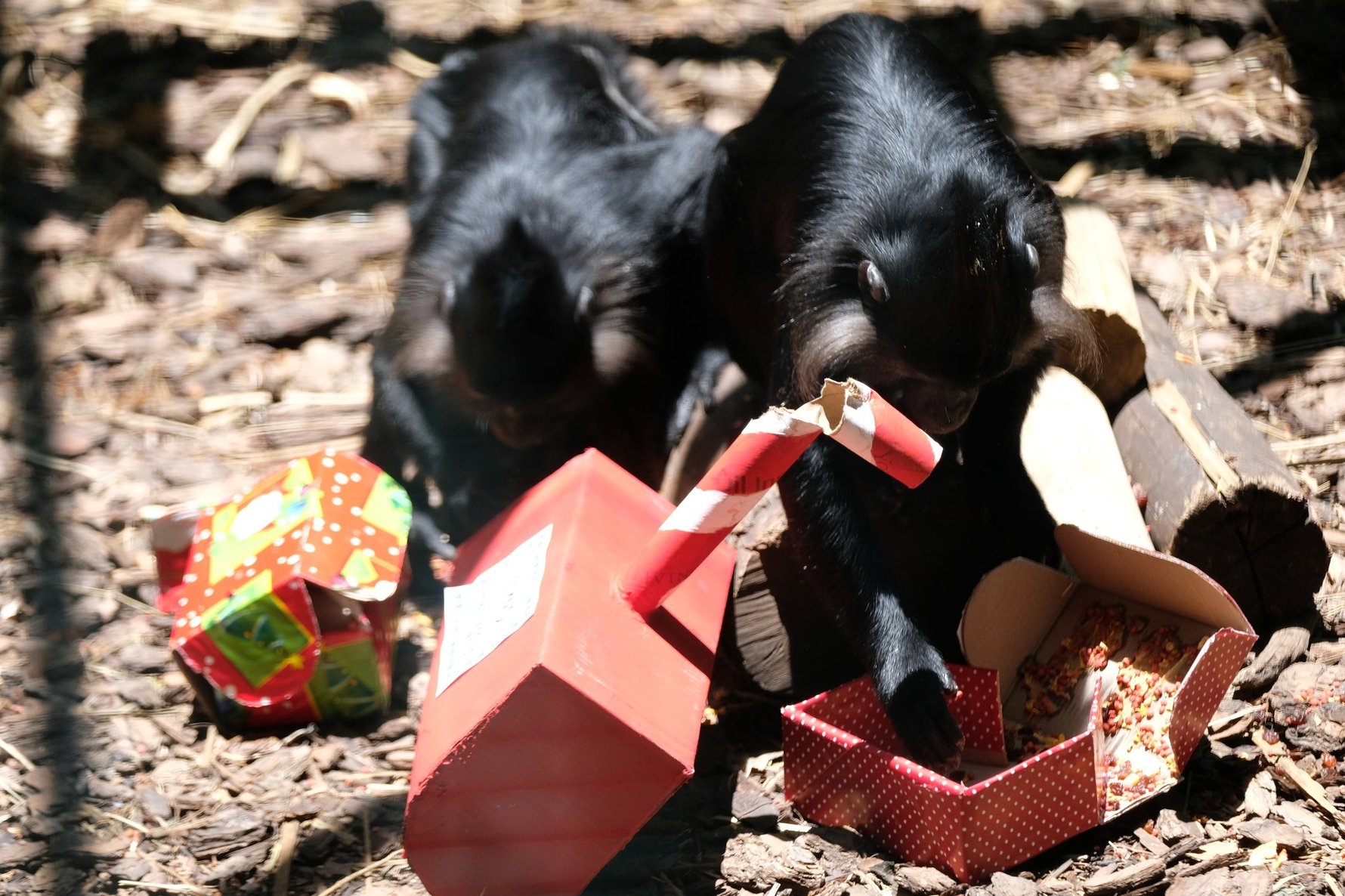
To see Johannesburg Zoo from a different perspective, join them for a 90-minute guided ferry tour that stops at all the main exhibits and is jam-packed with animal-related info. They also occasionally spoil some of the animals with a treat or two, which makes this tour both educational and entertaining. Tour prices vary between R122 and R152 per person, depending on the size of the group.
JOIN THE BEHIND THE SCENES TOUR
If you've ever wondered what it would be like to work at Johannesburg Zoo, this is your chance to see what happens behind the scenes. This guided walking tour takes you to places only the staff get to go, including some of the animals' night rooms, the kitchen, and the hospital. Rates for the Behind the Scenes Tour are R147 per person.
SNACK, NIBBLE, AND GRAZE
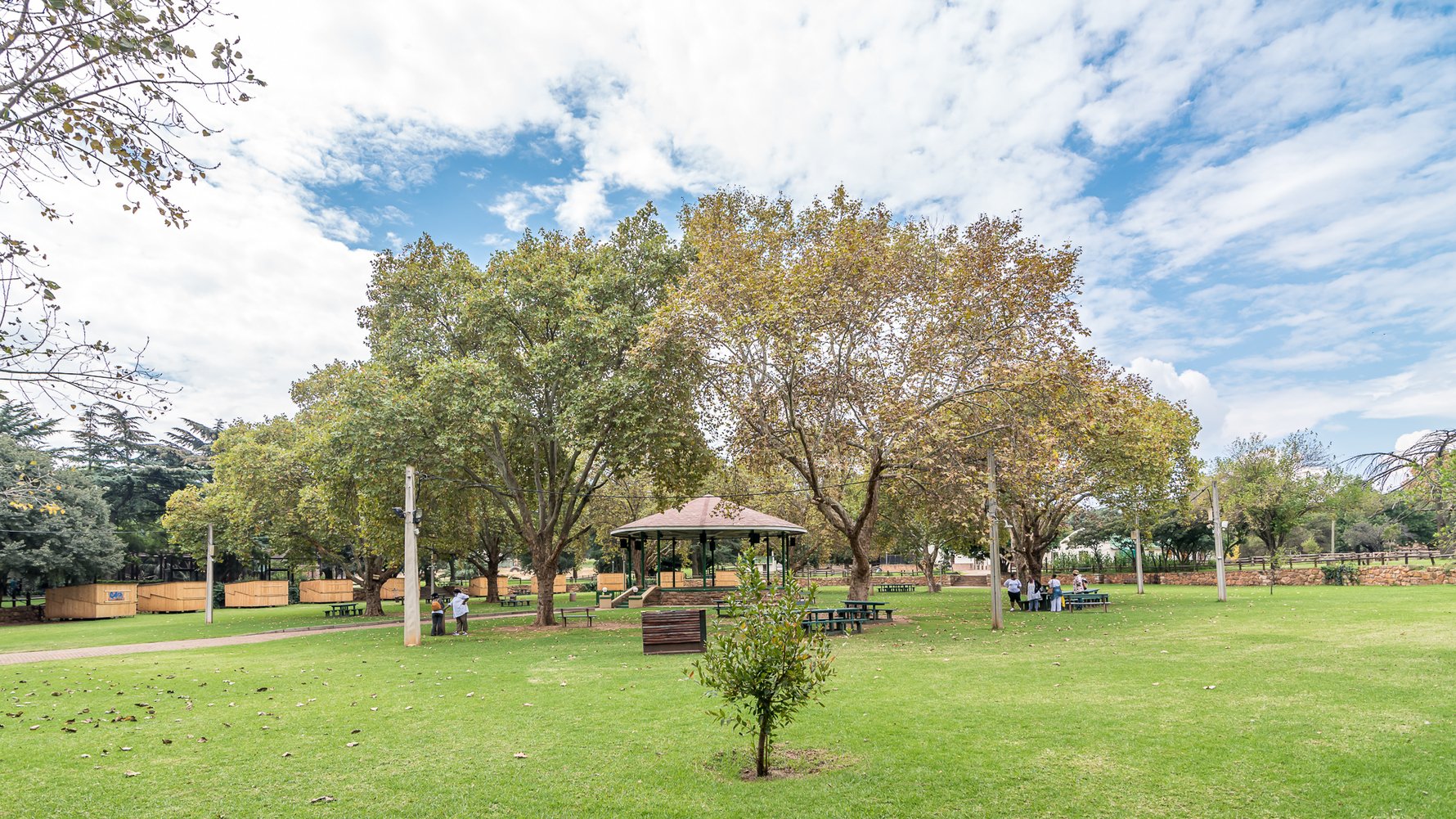
To help you avoid the stress of hangry children, Johannesburg Zoo has many different options for meals and snacks. Head to one of their food vendors or kiosks (only open on the weekend) for cotton candy or coffee, or sit down at Stages Restaurant for well-priced and scrumptious meals that include everything from sandwiches and salads to pizza and burgers. They also have several beautiful picnic spots if you want to bring along snacks.
VISIT THE AMUSEMENT PARK
Johannesburg Zoo is heaven for children, and the amusement park is just one reason why. Let your kids have fun on the different rides (including the very popular hippo cars) while you take a moment to sit back and relax. The amusement park is open on weekends, public holidays, and during school holidays. Contact Christy at +27 82 825 7633 or amusementworld@telkomsa.net for more info.
JOIN A CONSERVATION WALK
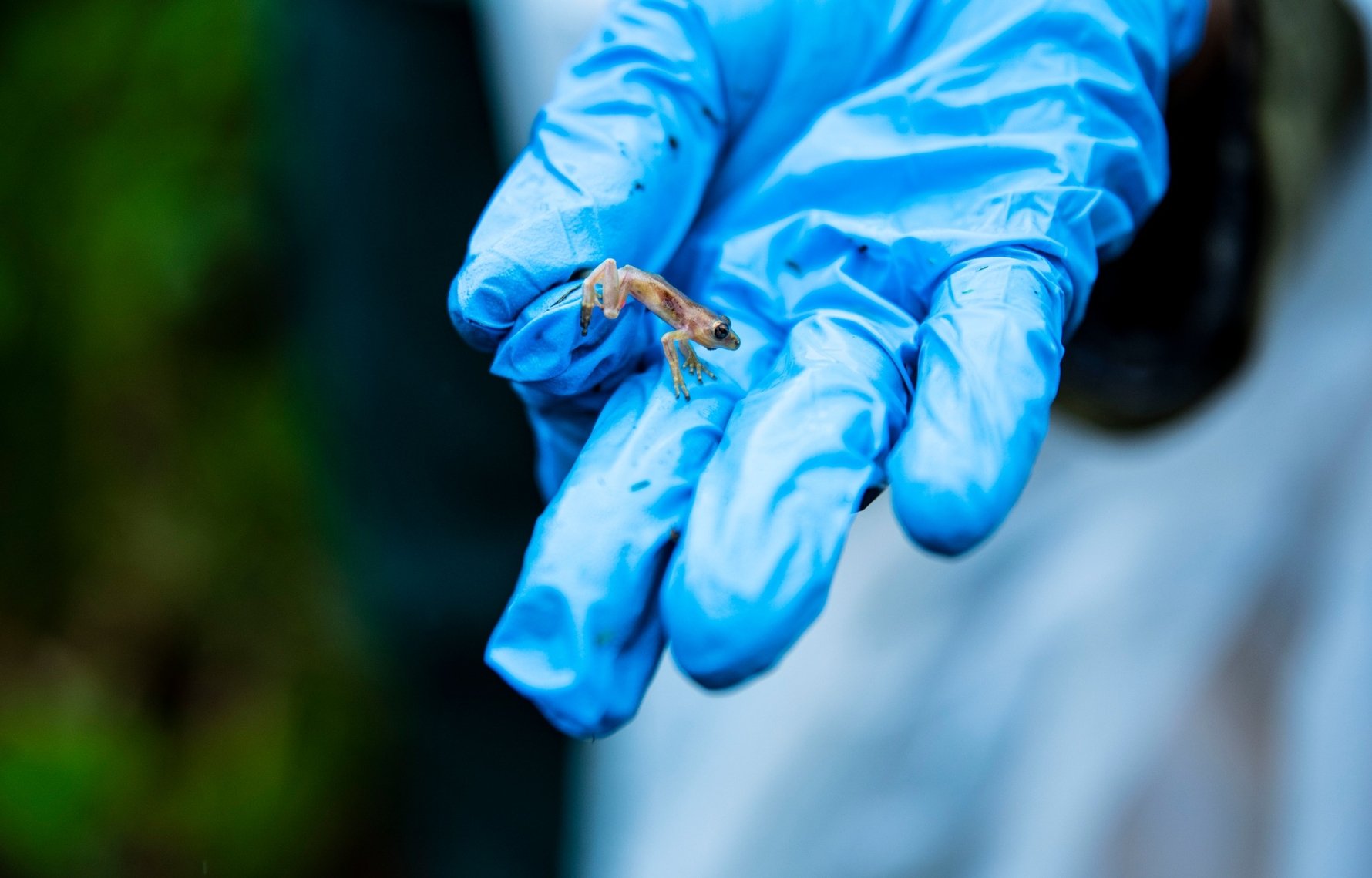
Johannesburg Zoo is internationally accredited and is home to several IUCN Red List animals, such as Black and White Rhinos and the Red Panda. To raise awareness and promote environmental solutions, the zoo offers guided conservation walks that focus on specific environmental issues. Walks cost R81 per person.
BROWSE THIS IS AFRICA GIFT SHOP
No day at Johannesburg Zoo is complete without a memento, which is why a visit to This Is Africa Gift Shop is a must. Access the shop from the Upper Park Drive entrance, where you can browse locally-produced products and souvenirs.
BOOK A NIGHT TOUR
Johannesburg Zoo at night is a completely different experience, and their range of guided night tours is well worth it. Watch the diurnal animals settle in for the night while all the nocturnal creatures come out to play on the Sunset Tour (from 16:00 to 18:30), the Moonlight Tour (from 17:15 to 18:00), or the Night Tour (from 18:15 to 21:00). Prices vary between R147 and R161 per person, depending on the size of the group.
CAMP OUT WITH THE ZOO SNOOZE
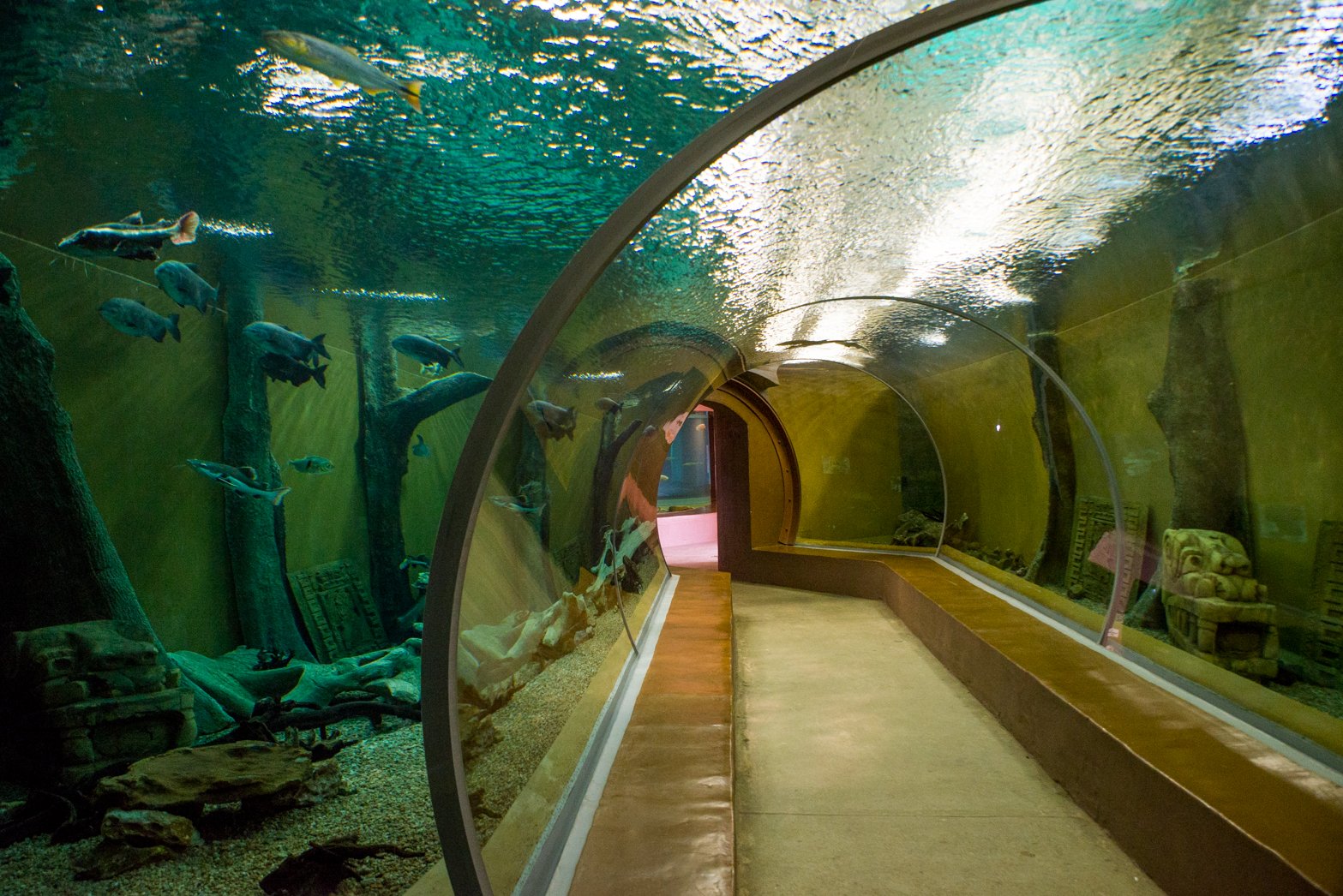
The ever-popular Zoo Snooze is a guided night tour that includes an overnight campout, a bonfire, a behind-the-scenes view of the comings and goings of Johannesburg Zoo, and if you're lucky, a few roars from the local lions. Tickets range between R198 and R255 per person, depending on the size of the group. Book with Lebo Moalusi at +27 11 646 2000 or lebo.moalusi@jhbzoo.org.za. Please bring your own camping gear, gas braai, food, warm clothes, and a sense of adventure.
ZOO TROT
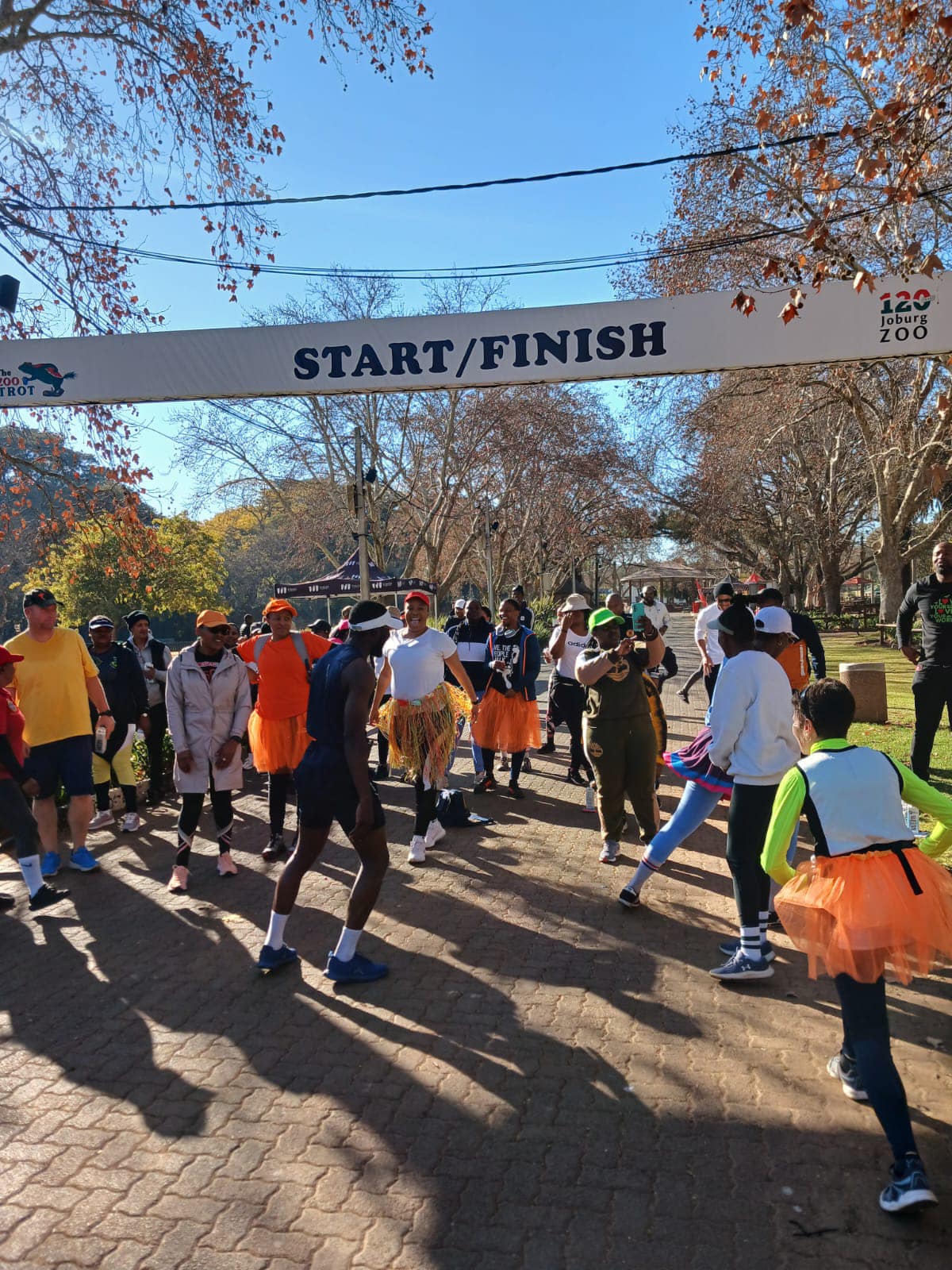
Happening every second Sunday of the month, the Zoo Trot is a great way to explore Johannesburg Zoo while staying in shape. Offering a 5km run or walk at R74 per person, this event will turn your exercise time into a family adventure or bring a whole new flavour to your running routine. Registration starts at 07:00 and the race starts at 07:30.
JAZZ IN THE LIGHTS
Calling all jazz aficionados: join Johannesburg Zoo for performances by local and international jazz artists at Johannesburg Zoo's annual Jazz in the Lights events. Thanks to their collaboration with GPSCAR and JCPZ, they are able to bring you this fun-filled family day that entertains young and old.
FESTIVAL OF LIGHTS
Start your Christmas with a night of enchantment at Johannesburg Zoo's Festival of Lights. Featuring thousands of Christmas lights strung from the zoo's tree-lined walkways, an enormous Christmas tree made of lights on the main lawn, and an array of performances by dancers, DJs, and other popular artists, this is a festive event you cannot miss. Stay updated by following them on Instagram or Facebook.
Johannesburg Zoo conservation projects
Modern zoos are about more than viewing animals: they present us with an opportunity to be part of global conservation projects that aim to educate about and protect the world's biodiversity. Johannesburg Zoo is part of an international programme to protect species and ecosystems, and they are home to a number of animals on the IUCN Red List. They also focus on other environmental issues such as water management, waste management, raising awareness about the importance of trees, and creating and implementing anti-litter campaigns. Find out more here.
Currently, Johannesburg Zoo is involved in a number of conservation projects:
RHINO CONSERVATION PROJECT
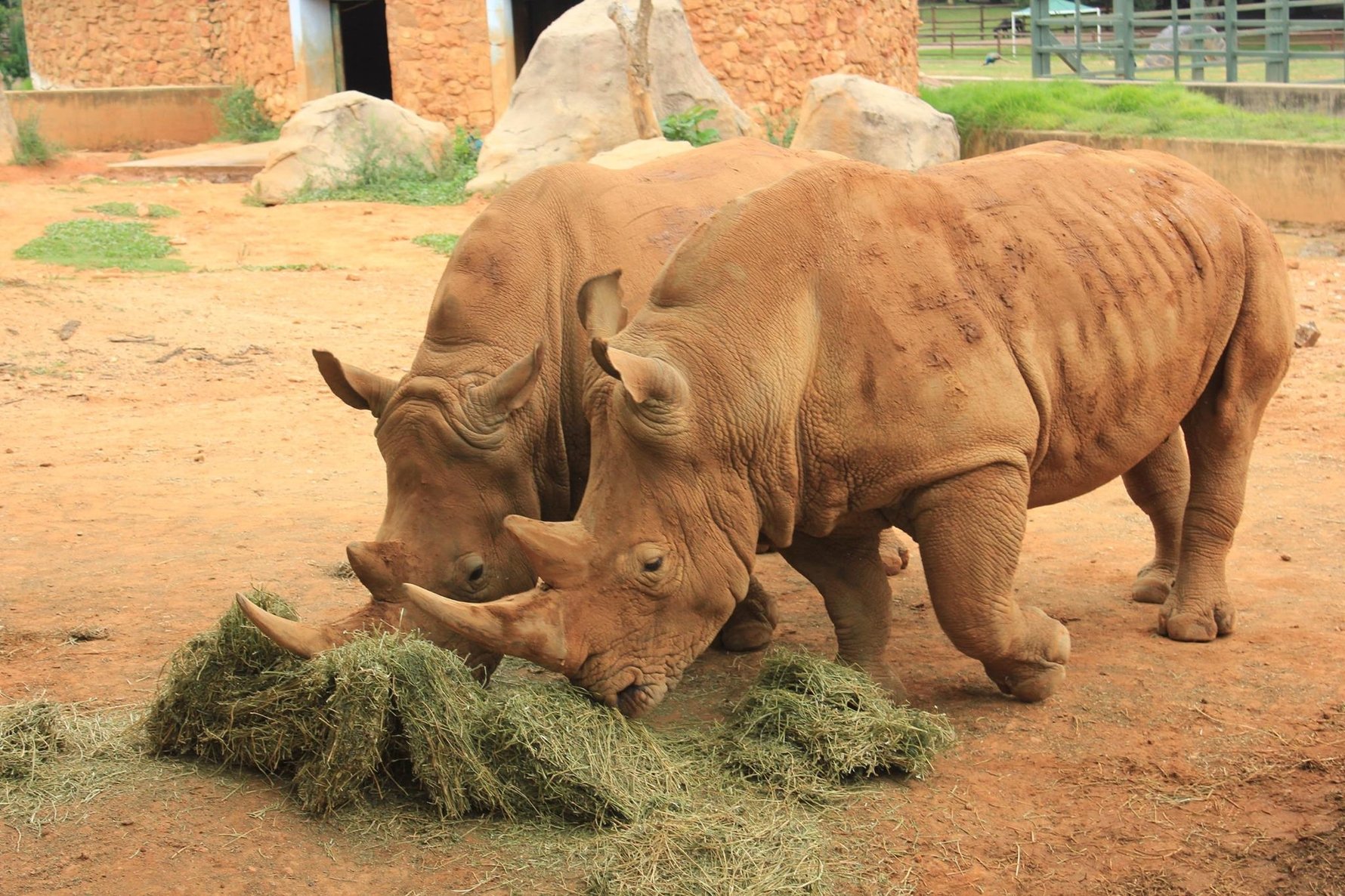
As part of their efforts to conserve the rhino, the Johannesburg Zoo currently houses both the Black and White Rhino. Currently labelled 'critically endangered' by the IUCN's Red List, it is imperative that more people and organisations become involved in conservation efforts such as this one. Johannesburg Zoo's rhinos are called Zimbi, Peter, and Shaka, and they are a popular attraction at the zoo.
PICKERGILL'S REED FROG
Since 2006, The Amphibian Research Project has worked to assist with the conservation of the endangered amphibian species, the Pickersgill’s Reed Frog, which is a small endemic species that occurs only on the KwaZulu-Natal coast. Part of this project involves creating sustainable populations in Johannesburg Zoo, as well as creating a Biodiversity Management Plan aimed specifically at the conservation of the Pickergill's Reed Frog.
WATTLED CRANE
Johannesburg Zoo currently leads the Wattled Crane Recovery Programme to help fight the extinction of these critically endangered birds. Thought to be as little as 250 remaining in the wild, these creatures are now part of a breeding programme set up by the zoo to ensure the survival of the species.
SOUTHERN GROUND-HORNBILL CONSERVATION PROJECT
The Southern Ground-Hornbill has been endangered for many years, which prompted the initiation of the Mabula Ground Hornbill Project in 1999. Since then, Johannesburg Zoo has been involved in promoting education and awareness, mitigating threats to the species, providing artificial nest sites, improving the population size through hand-rearing, and reintroducing some of the animals into the wild.
OWL EDUCATION PROJECT
The aim of the Owl Conservation Project is to promote education about owls and their habitats, as well as create a sustainable insurance population. To quote Johannesburg Zoo: " In order for people and owls to co-exist peacefully, people need to be educated about owls, their biology as well as the benefits of having owls in their communities".
HOW CAN I SUPPORT JOHANNESBURG ZOO'S CONSERVATION EFFORTS?
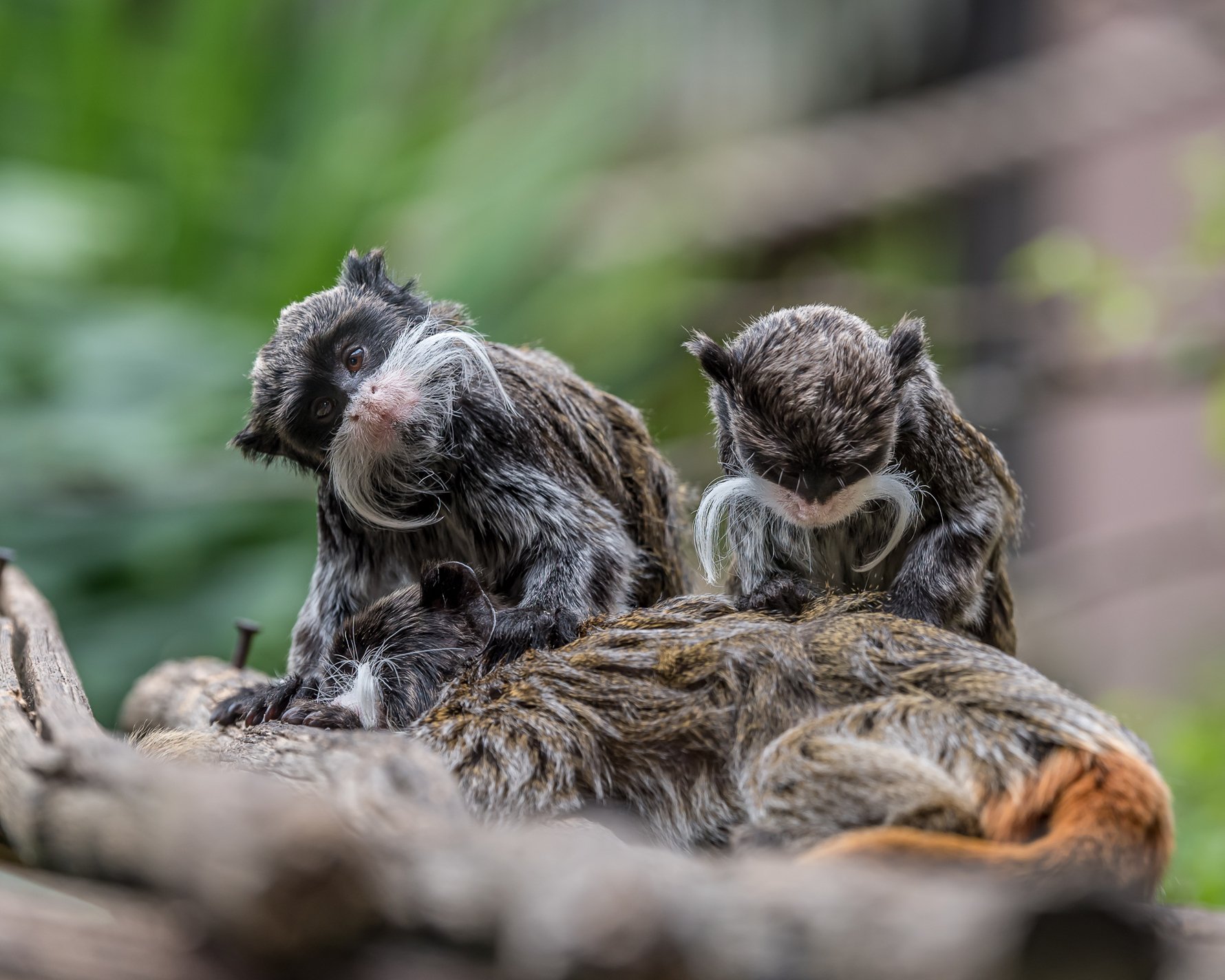
There are several ways in which you can support Johannesburg Zoo's conservation efforts. These include buying memberships, making donations, or adopting an animal. The Animal Adoption Programme includes all animals, and is open to individuals, corporations, schools, clubs, families, and groups. There are several packages on offer, and they include a personalised adoption certificate. a free entrance and parking voucher, a photograph of your adopted animal, and information about the species. For more information about the programme, visit their website or contact them at +27 11 646 2000 or Ioanna@jhbzoo.org.za.
Plan your visit
HOW MUCH IS THE ENTRANCE FEE AT JOHANNESBURG ZOO?Entrance fees at Johannesburg Zoo change annually in July. As of 1 July 2024, entrance is R126 per adult, and R74 for children, senior citizens, and students (applies only to weekdays). Annual passes are also available if you want to make these visits a regular institution. More information about their fees can be found here.
CAN I BUY TICKETS ONLINE?
Unfortunately, we currently do not have an online ticketing system. Tickets are sold at the Zoo by the Upper Park entrance.
WHAT ARE JOHANNESBURG ZOO'S OPERATING HOURS?
Johannesburg Zoo is open 365 days a year from Mon to Sun, including public holidays. Their regular operating hours are 08:30 to 17:30, with the last entries at 16:00. However, these times may change on special occasions and during events.
WHERE DO I PARK AT JOHANNESBURG ZOO?
Johannesburg Zoo is located in Saxonwold on the corner of Jan Smuts Avenue and Upper Park Drive in Parkview. The main public entrance can be found on Upper Park Drive, where you will find their secure parking space. Parking fees are R18 for cars and minivans and R30 for buses.
CAN I BRING MY OWN FOOD TO JOHANNESBURG ZOO?
You can bring your own food to Johannesburg Zoo – in fact, this is the perfect picnic spot! They also have several food vendors and kiosks (did someone say 'ice cream'?), as well as Stages restaurant that serves affordable meals to satisfy young and old. Note that no drinks in cans or glass bottles are allowed on the premises, and braaing is prohibited. They also ask that you please keep the area litter-free.
IS JOHANNESBURG ZOO PET-FRIENDLY?
Your furry friend is not allowed at Johannesburg Zoo.
IS ALCOHOL ALLOWED AT JOHANNESBURG ZOO?
Alcohol is not allowed at Johannesburg Zoo, and neither are any drinks in glass bottles or cans.
WHAT ACTIVITIES DO THEY OFFER AT JOHANNESBURG ZOO?
Johannesburg Zoo offers a smorgasbord of activity. In addition to the many animals and exhibits you can view, they also have an amusement park, a restaurant, a number of food vendors and kiosks, picnic spots, a curio shop, and a place where you can rent golf carts. They also host events throughout the year; learn more on their Facebook page or Instagram page.
CAN I RENT JOHANNESBURG ZOO'S FACILITIES?
There are several indoor and outdoor spaces that can be rented for private events such as teambuilding, parties, and conferences and meetings. For more info, contact Leesel van Louw at +27 11 646 2000/2240 or leesel.vanlouw@jhbcityparks.com or mosey over to their website.
HOW CAN I CONTACT JOHANNESBURG ZOO?
Visitor enquiries can be made at the Info Kiosk next to Johannesburg Zoo's entrance or at +27 11 646 2000 or +27 11 646 2207.
WHAT DO I DO IN CASE OF AN EMERGENCY?
Johannesburg Zoo has an on-site first aid manager who can be contacted during office hours. Other emergency numbers are:
Life-threatening emergencies: +27 11 375 5911
Zoo security: +27 646 2000
OTHER THINGS TO KEEP IN MIND WHEN VISITING JOHANNESBURG ZOO
You are not allowed to bring any objects, such as balls or balloons, that can harm the animals into Johannesburg Zoo. No person except trained personnel is allowed to feed the animals.
Johannesburg Zoo has no atm facilities, so make sure you have a card or cash on hand.


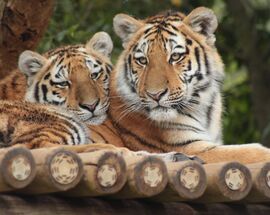
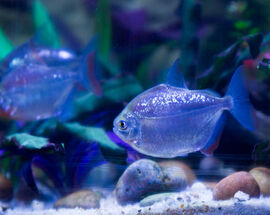
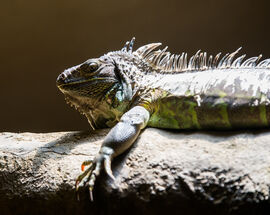


Comments